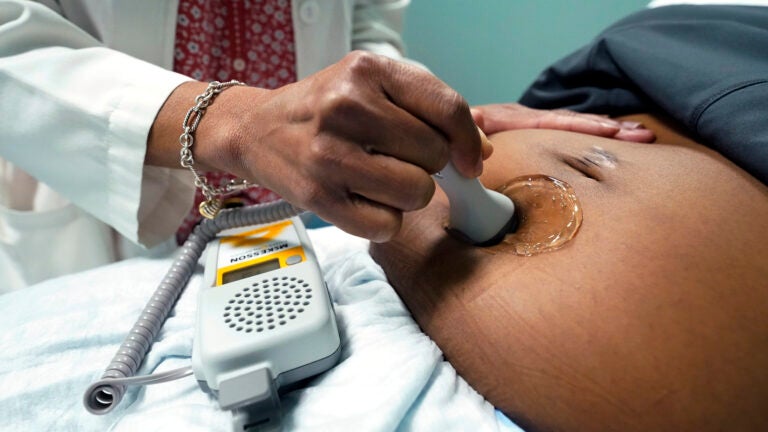Report: Black Bostonians have the highest rates of infant mortality in the city
Health
A new report from the Boston Public Health Commission found that the rate of Black infant deaths is more than double the citywide average.

Black infants in Boston die at a rate more than double the citywide average — and more than three times as often as white infants, according to a new report from the Boston Public Health Commission.
Released Thursday, the report highlights the latest trends in maternal and infant health across the city. Perhaps most troubling: Black Bostonians experience the highest rates of infant mortality, preterm births, and low birth weights.
According to the report, the mortality rate for the city’s Black babies in 2021 was 9.7 deaths per 1,000 live births, compared to 3.2 deaths for white infants and a citywide average of 4.6 deaths.
Racial disparities were also visible at the neighborhood level among communities with larger Black populations, according to the report.
For example, a child born to parents in Roslindale (25% Black) had a pretty good chance of making it to their first birthday; between 2012-2021, the neighborhood boasted the lowest infant mortality rate in all of Boston at just 2.4 deaths per 1,000 live births.
A few blocks away, however, Hyde Park (48.7% Black) had the highest infant mortality rate of any Boston neighborhood — 7.8 deaths per 1,000 live births.
Meanwhile, predominantly Black Mattapan and Dorchester had the highest percentages of preterm births and babies born with low birth weights, according to the report.
“The findings of our Maternal and Child Health of Boston Report are a call to action for our city,” said Dr. Bisola Ojikutu, commissioner of public health and BPHC executive director. “These stark racial inequities in infant mortality and other birth outcomes cannot continue to exist. Boston is one of the few cities with the public health and health care infrastructure necessary to address these inequities, and we will commit our resources to doing so.”
The bigger picture
Thursday’s report echoes the finding of a Massachusetts Department of Public Health study released in July, which determined that Black, non-Hispanic residents consistently face the highest rates of labor and delivery complications. Another statewide study last year found that Black, non-Hispanic women are 1.9 times more likely to die during pregnancy or within a year of giving birth compared to white women.
Speaking to reporters this week, Ojikutu explained that inquiries into maternal health disparities have long focused on individual circumstances: “What are Black mothers not doing right? Are they smoking or drinking during pregnancy? Are they eating poorly? Are they overweight? Are they not going to the doctor or not caring for their child appropriately at home?”
Yet studies have shown that individual behaviors don’t fully account for those disparate outcomes, she said. According to BPHC, non-medical factors like housing, income, and education play a role, as do racism, discrimination, and implicit bias within the health care system.
“The way that this is thought to work is that chronic stress — caused by exposure to adverse circumstances and adverse environments that are promoted by racism — throughout the span of a Black woman’s life contributes significantly to biologic changes that may affect a woman’s health and predict the health of her infants,” Ojikutu said.
She highlighted some existing programs Boston is using to support new parents and their babies, including the Healthy Start Initiative and the Healthy Baby Healthy Child program. BPHC was also recently awarded a $4.7 million grant from the U.S. Department of Health and Human Services to establish the Boston Healthy Families Community-Based Perinatal Health Project, an initiative that will increase access to doula care throughout Boston.
Still, Ojikutu said there’s a need for more focus on the root causes of the maternal health crisis, “whether it be institutional racism within the health care institution or talking about structural racism and what’s impacting the environments in which women live.”
In a statement, Mayor Michelle Wu called the new BPHC report findings “alarming” and pledged action.
“As the nation’s health care hub, Boston has a responsibility to lead by tackling the social determinants of health that unjustly harm our residents and disproportionately impact BIPOC communities,” Wu said.
Newsletter Signup
Stay up to date on all the latest news from Boston.com